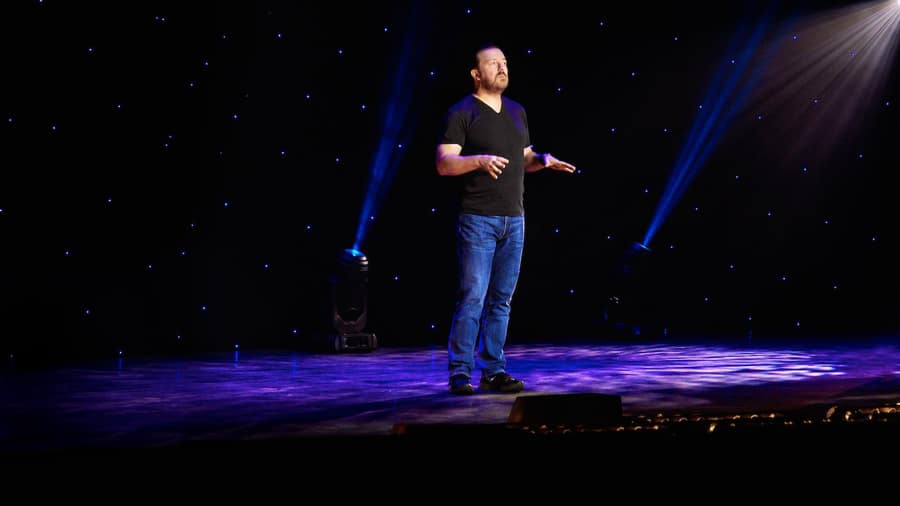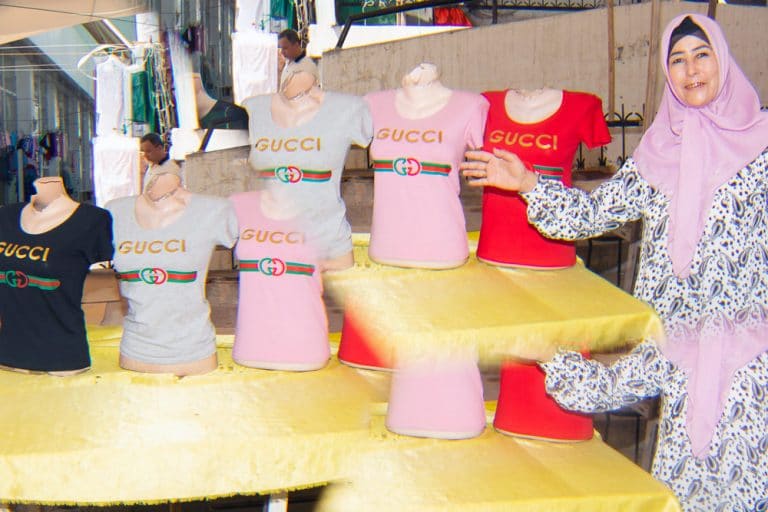Does defending freedom of speech equal defending racist jokes and gay jokes? Ricky Gervais, Family Guy and Dave Chappelle agree
Racist jokes and gay jokes are still being told
Freedom of speech and expression is under threat, at least that’s what some comedians are currently saying. During his Humanity Netflix special, British comedian Ricky Gervais said that he found himself in a Twitter argument defending an alt-right creationist just because he too had the right to express his own thoughts.

And Gervais is not alone. Across the board, from Dave Chappelle and Iliza Shlesinger to Bill Burr and Tiffany Haddish, comedians are advocating for freedom of speech and against the type of ‘cancel culture’ that is blind to context and the very nature of humour. An artform they believe to be sacred.
Racist jokes
Sure, there are racist comics out there that tell racist jokes. And yes, I can absolutely see why certain jokes might be tagged racist jokes or transphobic jokes if taken out of context, but to quote Chappelle as he accepts his Mark Twain Prize for American Humour in 2019: “there’s something so true about this genre, when done correctly, that I would fight anybody who gets in a true practitioner’s way,” adding: “I’m not talking about the content, I’m talking about the art form.”
Three years ago Brian Logan wrote an article for The Guardian where he ponders on the correctness of some comedians’ “Ironic Bigotry” as he calls it. The same irony that saw Dave Chappelle win an Emmy for his Sticks and Stones special. Logan questions whether Chappelle’s comments on gay and trans persons was his way of smashing taboos with a sledgehammer, “Or can it be that a comic revered for his contribution to racial discourse in the US, primarily via his sketch series Chappelle’s Show, may be insensitive to discrimination based on sexuality and gender?”
The real question here being, could it be that Chappelle, Gervais and Burr are each passing off discrimination and flat out racist jokes under the guise of woke comedy? I would argue that the answer is no. Not for the practitioners who do it right; who direct the joke to the right place. And I too would argue that we have to laugh when we can, about whatever it is that we want. Because the route from political correctness to outright censorship is short, and we have to fight for our right of expression. But yes, the line is fine here and easy to overstep.
Just at the end of 2019, Shane Gillis was fired from SNL after videos surfaced of him telling blithely racist Asian jokes not even hours after he signed his contract to join the hit American late night show. “We as a society are doomed unless male comedians can be racist without criticism or consequence!!!” wrote Kevin Fallon sarcastically for the Daily Beast. Adding that no critic, no fan or staff member is denying Gillis the right to tell the jokes—however lame they might have been. “But just because Gillis has a right to make those jokes doesn’t mean he has a right to a bigger platform from which to make them.”
Gay and homophobic jokes
In that same breath, gay jokes have also been a massive part of our culture, whether we’ve noticed them or not. Family Guy is just one example of this—and yes it may seem archaic, but the show only recently, like really really recently (end of 2019) publicly announced it will no longer be participating in the expression of gay jokes.
As Clemence Michallon writes so well in her article for The Independent Family Guy reverses its stance on ‘gay jokes’: why? “The way in which the decision was communicated, too, was worthy of attention. It started with a fictional Donald Trump telling Peter: ‘Many children have learned their favourite Jewish, black, and gay jokes by watching your show over the years’, to which Peter replied: ‘In fairness, we’ve been trying to phase out the gay stuff.’”
Jokes that hurt and humiliate are not OK
The key here is that racist jokes, gay jokes and trans jokes should never be OK to tell if the joke is to hurt, humiliate and undermine. Some jokes may feel too close to home, and for that we are allowed to switch off, to not engage. Gervais commented that not everything is for everyone, and that too is OK.
Most importantly, in art and creative expression as well as in comedy, there is a representative for each and every one of us out there. To quote Chappelle, “I don’t think there’s an opinion that isn’t represented by somebody. Each and every one of you has a champion in the room.”
People should not be quick to cancel Gervais or Chappelle only because they were offended by one of their jokes. Their aim is not to discriminate against a specific ethnicity, gender, or sexuality but more to do their job; to make fun of everything and everyone.





